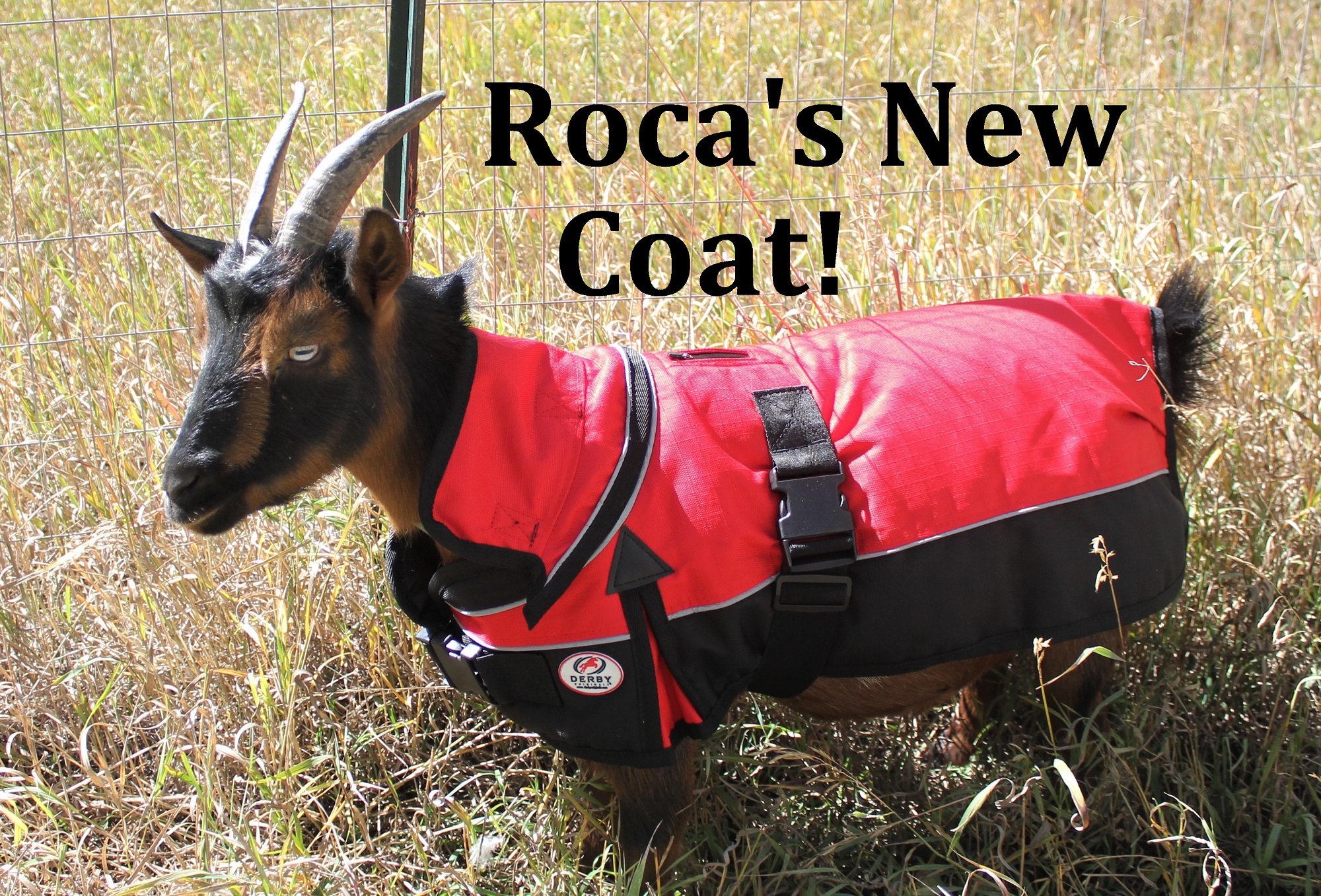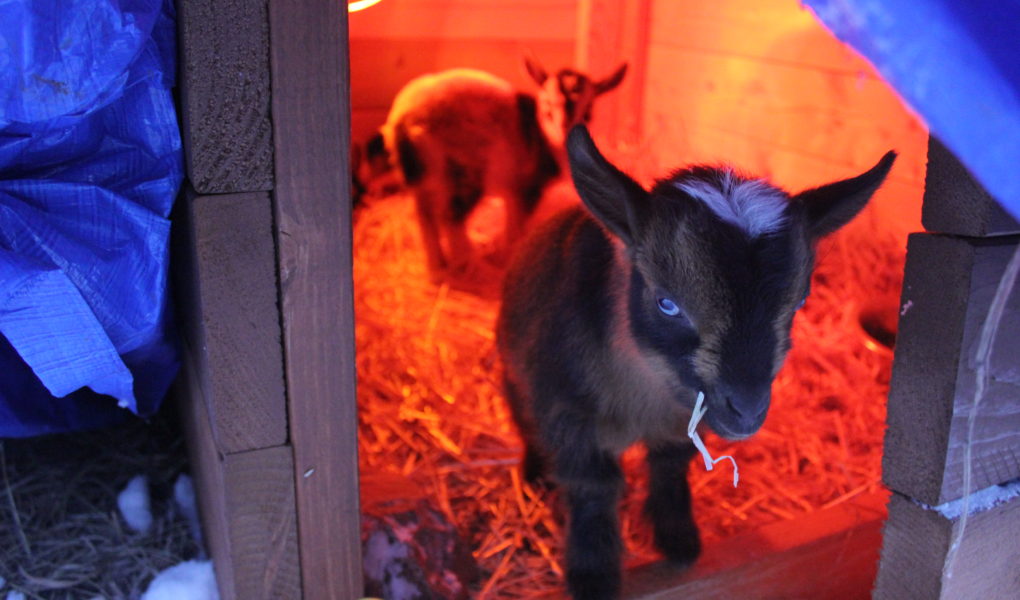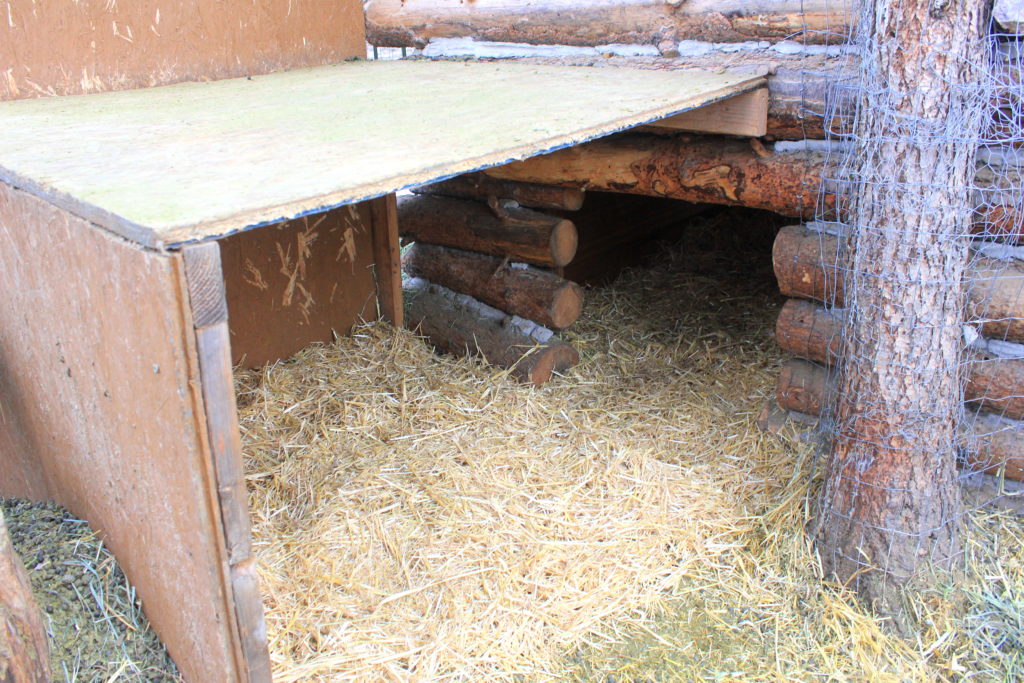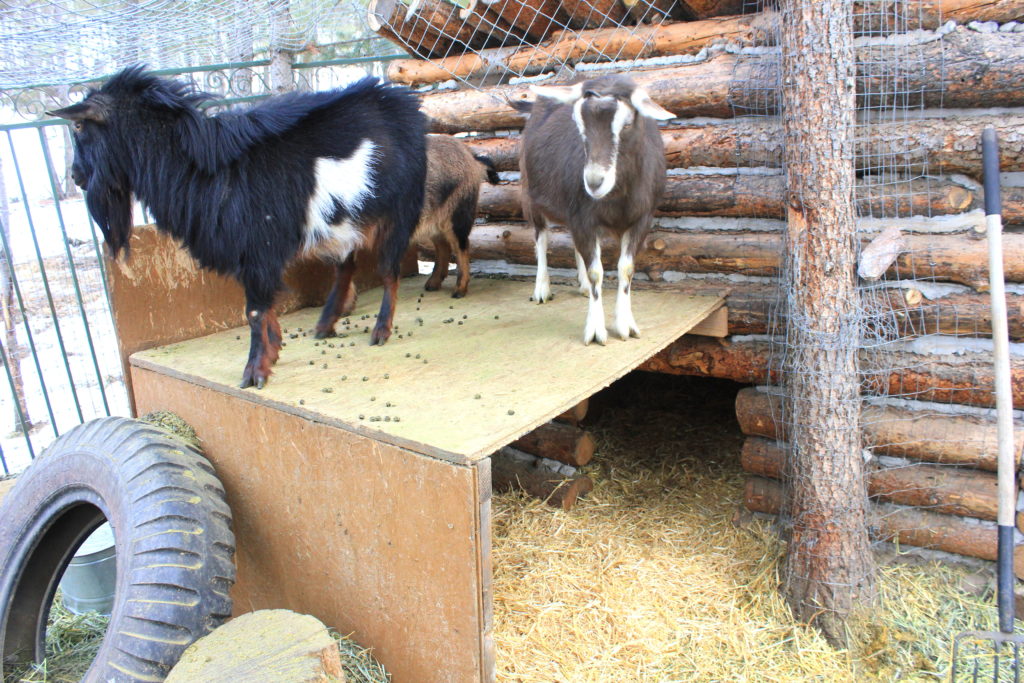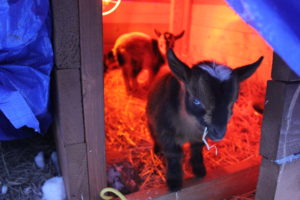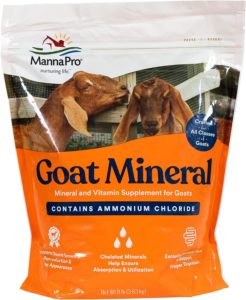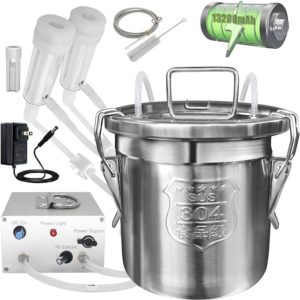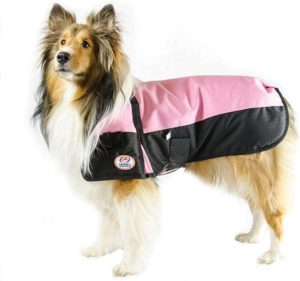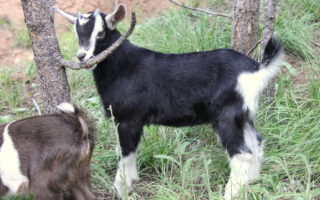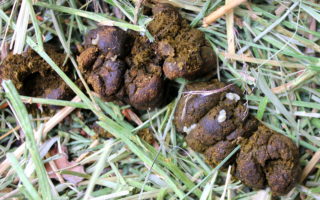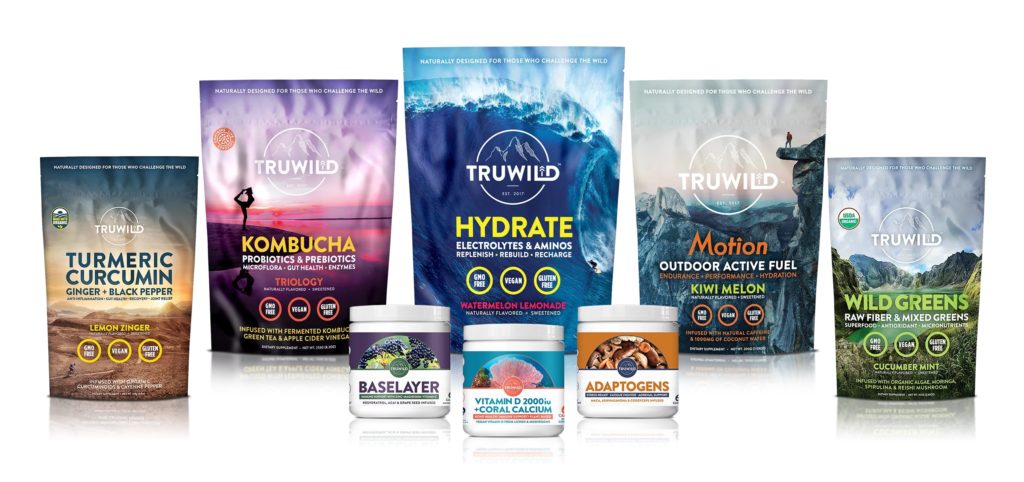Goats are pretty simple to care for in the winter. Their bodies adjust as the temperatures change. There are a few things you’ll want to keep up on to make them comfortable . . .
Water
Unless you have a heater for your goats’ water, then you’ll have to make sure they are getting fresh water at least once per day. This is especially important if you have any does that are pregnant. You can also float a ball in their water can help prolong the water from freezing. We have to haul our water in, so water is precious. We figure out what our goats will drink in one sitting and let them drink their fill at least once if not twice per day. On sunny days when we are on our walks, they will also drink from any melted pools of snow or eat the snow itself. When it gets extremely cold (the negatives) we like to spoil the goats with warmed water. This helps keep them warmer.
Shelter
The most important thing is keeping dry in a wind resistant shelter with a few inches of bedding. We have a 4-sided shelter with a door and additional 2-sided area to protect them from the elements. The bare ground can also sap the heat from their bodies, so we give a thick layer of straw bedding at least 2-6 inches thick depending on how cold of temperatures we are expecting.
Feed Closer To Bedtime
Nighttime is where you’re going to get your coldest temperatures and your goats are less active or bedding down for the night. Feeding your goat around bedtime keeps their gut active and in turn, helps keep them warm. I want to avoid saying that grain is a good idea as your goats should be fine with hay in general and you don’t want your goats to begin to expect it every night. But a handful of grain can provide a little extra calorie boost as well, especially if you have an underweight goat.

Supplements
If you normally free range your goats, they are getting less nutrients in the winter when everything is dead. Making sure to provide free choice minerals keeps your goats nutrition at optimal levels. This in turn makes them more resilient to what the weather has to throw at them.
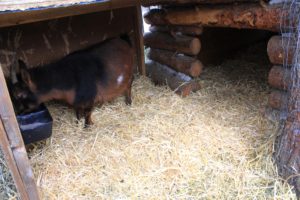
Heaters
Try to avoid heaters unless absolutely necessary. Your goats should have their own thick winter coats to keep them plenty warm. A heater on a regular basis can mess up that winter coat they’ve created and put them at risk if that heater fails. A lot of barn fires have also been known to happen from typical heat lamps. If you want to put the money into it there are heaters designed for small dog houses that are a safer option.
How Cold Is Too Cold?
That’s a difficult one to judge and depends on the age, coat thickness, and living conditions of the animal. Here in Colorado, we’ve seen it get down to about -20°F and the goats have done just fine (even the pregnant ones). They didn’t want to leave their shelter at that temperature, but they made out just fine without any frostbite. I’m sure they could do colder than that but personally, I’d want to provide coats for each goat at that point just for comfort’s sake.
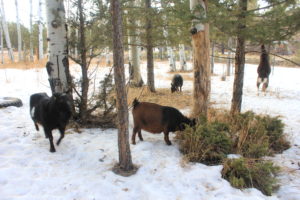
What About Pregnant Mamas & Babies?
There’s a definite concern for mama goats about to give birth, and their little babies. The hope is that the temperatures are starting to warm as we get closer to kidding season. We tend to split does into their own little huts for birth. As we run off of solar power, individual heaters are not on viable option for us. You need to keep an extra close eye on when your girls are going to pop so that hopefully you can be there to help dry off the babies as they come. A wet baby is a dead baby if it gets hypothermia. Once dry, baby goats should be able to handle below freezing temps with no problem. It’s helpful to put a small dog sweater or something on them to provide them a winter coat of sorts which they will be lacking at this time. BUT BE WARNED, some people have had baby goats tangle themselves up in a sweater and die. Baby goats will definitely appreciate some artificial heat of sorts if your able to provide it safely.
One day one of my does decided to give birth to quads at dusk where the temperature was soon to be below freezing at 28°F. I helped clean off the babies and get them dry as possible. Didn’t get a lick of sleep all night but the babies were just fine the next day and enjoyed basking in the warmth of the sun. However! The next night we got near single digits. I stressed over what to do, wanting to bring them inside the house with us where it was warm, but also not wanting to separate them from mom yet. At the time, we also had no way of providing supplementary heat. So, we put a nice thick layer of straw in their shelter and relied on mom to keep them warm. Another sleepless night for me. But when I checked on them the babies were huddled together in a corner of the shelter with mom. Mom was snug up against them and reached her neck and head over the tops of them to keep them warm. It was ADORABLE! So, they had another successful night. Temperatures finally warmed up after those couple of cold nights.
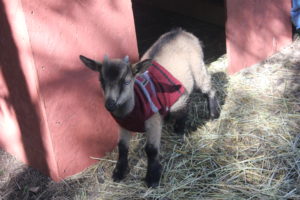
Use your best judgment and monitor how well your animals are taking the cold. In most cases, as long as their basic needs are met, they should get through winter just fine.
